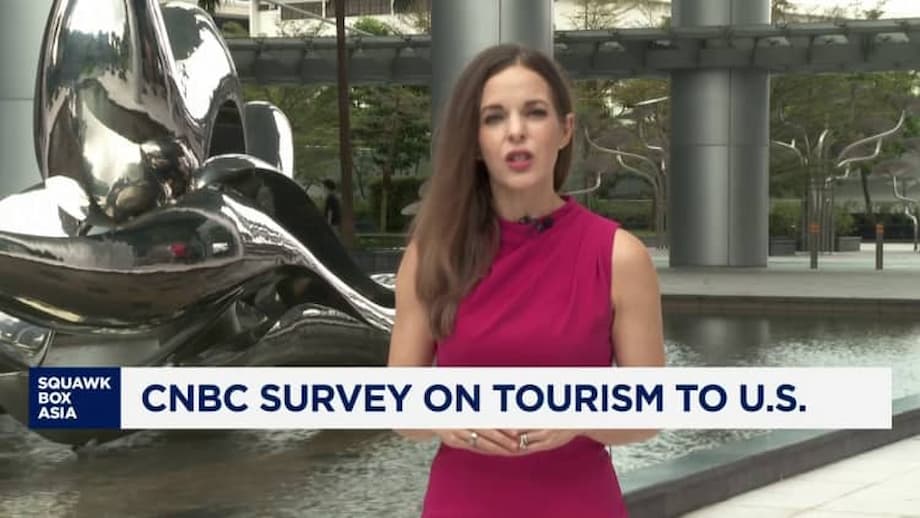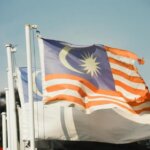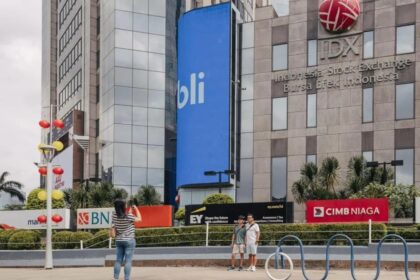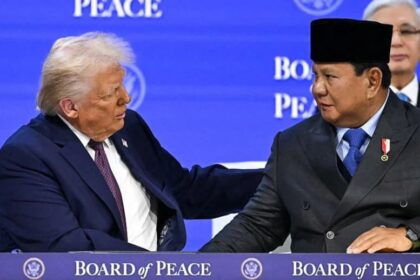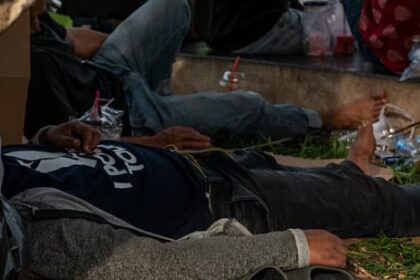Singaporeans’ Waning Interest in U.S. Travel: A Shift Driven by Safety Concerns
Singaporeans, long known for their love of travel and global exploration, are increasingly turning away from the United States as a destination. Recent surveys and travel industry data reveal a marked decline in interest among Singaporeans to visit the U.S., with safety and security concerns at the forefront. This trend stands in stark contrast to the broader Southeast Asian region, where interest in U.S. travel remains relatively robust. What is driving this divergence, and what does it say about the evolving landscape of international travel?
- Singaporeans’ Waning Interest in U.S. Travel: A Shift Driven by Safety Concerns
- Survey Data: Singaporeans Stand Out in Regional Comparison
- Immigration Hurdles: Confidence Gap Despite Strong Passport
- Gun Violence and Hate Crimes: A Stark Contrast with Singapore
- Political Climate and the Trump Effect
- Singapore’s Broader Approach to Travel Safety
- Regional and Global Context: Security Concerns Beyond the U.S.
- Health and Safety: Contrasting Standards
- What Does This Mean for the Future of U.S.-Singapore Travel?
- In Summary
At the heart of the issue are Singaporeans’ heightened expectations for personal safety, shaped by their country’s exceptionally low crime rates and strong rule of law. As global headlines spotlight issues like gun violence, hate crimes, and political unrest in the U.S., many Singaporeans are re-evaluating the risks and rewards of American travel. This article explores the data, the underlying fears, and the broader context shaping Singaporeans’ travel decisions.
Survey Data: Singaporeans Stand Out in Regional Comparison
A comprehensive survey conducted by Milieu Insight for CNBC Travel polled 6,000 travelers across Southeast Asia between May and June 2025. The results were striking: only 7% of Singaporeans reported increased interest in visiting the U.S. this year, while a significant 55% said their interest had decreased. By comparison, 44% of Southeast Asian respondents overall reported increased interest, and only 18% said their interest had fallen.
This makes Singaporeans the most cautious group among their regional peers, which include travelers from Indonesia, Vietnam, Thailand, the Philippines, and Malaysia. The data suggest that Singaporeans’ perceptions of the U.S. have shifted more dramatically than those in neighboring countries, despite sharing similar access to travel and, in many cases, comparable economic means.
One key factor is Singapore’s global reputation for safety. The country is consistently ranked among the safest in the world, with extremely low rates of violent crime and strict gun control laws. This environment shapes Singaporeans’ expectations and tolerance for risk when traveling abroad.
Top Concerns: Safety, Discrimination, and Political Climate
When asked about their reasons for avoiding U.S. travel, Singaporeans cited several interrelated concerns:
- Personal safety – Fears about crime, gun violence, and general security in American cities.
- Discrimination and hate crimes – Reports of anti-Asian incidents and broader racial tensions.
- Political climate – Uncertainty and apprehension about policies and rhetoric associated with the Trump administration.
- Border detentions and immigration scrutiny – Anxiety over the unpredictability of U.S. immigration controls.
These concerns are not merely abstract. Many Singaporeans referenced news coverage of hate crimes against Asians in the U.S., as well as the prevalence of firearms and high-profile incidents of mass shootings. The U.S. has far higher rates of gun-related deaths than other high-income countries, a fact that stands in stark contrast to Singapore’s near-total absence of gun violence.
One Singaporean traveler shared with CNBC,
“I used to love visiting the U.S., but now I worry about random violence and whether I’ll be treated differently because I’m Asian. It’s just not worth the stress.”
Such sentiments are echoed across social media and travel forums, where stories of negative experiences at U.S. immigration or in American cities circulate widely.
Immigration Hurdles: Confidence Gap Despite Strong Passport
Singaporeans enjoy the world’s most powerful passport, granting them visa-free or visa-on-arrival access to more countries than any other nationality. This means that, in theory, travel to the U.S. should be relatively straightforward. However, the survey found that only 60% of Singaporeans felt confident about passing through U.S. immigration smoothly, compared to 78% of other Southeast Asians.
This lack of confidence is rooted in stories of lengthy questioning, secondary screening, and even detentions at U.S. ports of entry. While such experiences are not unique to Singaporeans, the perception of unpredictability and the potential for unpleasant encounters weigh heavily on travel decisions.
Official guidance from Singapore’s Ministry of Foreign Affairs (MFA) reinforces the need for vigilance. The MFA advises travelers to the U.S. to stay informed about entry requirements, be prepared for enhanced screening, and to keep emergency contacts on hand. The advisory also highlights the importance of securing personal belongings, being aware of local laws, and preparing for emergencies such as natural disasters or civil unrest.
Gun Violence and Hate Crimes: A Stark Contrast with Singapore
One of the most frequently cited reasons for Singaporeans’ reluctance to visit the U.S. is the prevalence of gun violence. The United States experiences far more gun-related deaths than any other developed nation, with mass shootings and firearm homicides regularly making international headlines. For Singaporeans, who live in a society where private gun ownership is virtually nonexistent and violent crime is rare, this represents a significant culture shock.
Additionally, the rise in reported hate crimes against Asians in the U.S. since the COVID-19 pandemic has heightened fears of discrimination and personal harm. Singaporeans, who are part of a multi-ethnic but generally harmonious society, are particularly sensitive to stories of racial targeting abroad.
According to a previous CNBC report, nearly 80% of Southeast Asian travelers felt that the U.S. was losing its appeal as a travel destination, with concerns about discrimination and gun violence topping the list of fears. The perception that Asian travelers may face poor treatment or even hostility in the U.S. is a powerful deterrent.
Political Climate and the Trump Effect
The survey data also highlight the impact of American politics on international perceptions. The return of Donald Trump to the political stage has coincided with a notable decline in interest in U.S. travel among Southeast Asians, and especially among Singaporeans. Many respondents cited the actions and rhetoric of the Trump administration as contributing to a sense of unpredictability and unease.
One in four Southeast Asian travelers said their interest in visiting the U.S. declined specifically over the past six months, which aligns with the period since Trump took office. Policies related to immigration, border security, and international relations have all played a role in shaping these attitudes.
This phenomenon is not limited to Singapore or Southeast Asia. A YouGov report published in March 2025 indicated that global impressions of the U.S. as a travel destination have declined significantly since the start of the year, with Canadian travelers also avoiding the country in large numbers due to similar concerns.
Singapore’s Broader Approach to Travel Safety
The cautious attitude of Singaporeans toward U.S. travel is consistent with the country’s broader approach to travel safety. Singapore’s government regularly issues travel advisories for regions experiencing conflict, instability, or elevated security risks. Recent examples include advisories against non-essential travel to Jammu and Kashmir in India, Pakistan, and several other South Asian countries amid rising tensions and violence.
These advisories urge Singaporeans to avoid large gatherings, monitor local news, register with the MFA for emergency communication, and follow the instructions of local authorities. The travel industry in Singapore is responsive to such guidance, with agencies suspending tours and offering refunds or alternative itineraries when risks escalate.
This culture of caution is not unique to Singapore. Other countries, including the U.S., U.K., Canada, Australia, and Israel, often issue similar advisories for their citizens. However, Singapore’s small size, high level of government organization, and strong emphasis on public safety make its citizens particularly attuned to official warnings and risk assessments.
Regional and Global Context: Security Concerns Beyond the U.S.
Singaporeans’ reluctance to travel to the U.S. is part of a broader pattern of risk aversion in international travel. Recent events in South Asia and the Middle East have prompted airlines to suspend or reroute flights, and governments to update travel advisories. For example, Singapore Airlines has rerouted flights to avoid conflict zones, and the MFA has advised against travel to regions affected by military tensions or terrorism threats.
China, too, has advised its top artificial intelligence researchers and entrepreneurs to avoid U.S. travel due to fears of detention or pressure to reveal sensitive information. This reflects a growing trend of security-driven travel decisions, especially among countries and individuals with heightened exposure to geopolitical risks.
In this context, Singaporeans’ concerns about U.S. travel are not isolated. They reflect a global environment where safety, security, and political stability are increasingly important factors in travel planning. The rise of social media and instant news coverage amplifies awareness of risks, making travelers more cautious and better informed than ever before.
Health and Safety: Contrasting Standards
Singapore’s high standards for health and safety also influence travel decisions. The Centers for Disease Control and Prevention (CDC) highlights Singapore’s robust public health infrastructure, low rates of infectious disease, and strong food and water safety standards. Travelers from Singapore are accustomed to these protections and may be more sensitive to perceived risks abroad, whether related to crime, health, or environmental hazards.
Official advice for Singaporeans traveling to the U.S. includes staying up-to-date on vaccinations, securing personal belongings, and being prepared for emergencies such as natural disasters or civil unrest. The MFA also warns about the possibility of scams targeting travelers, urging vigilance and verification of any distress messages received from abroad.
What Does This Mean for the Future of U.S.-Singapore Travel?
The decline in Singaporeans’ interest in U.S. travel has implications for tourism, business, and people-to-people exchanges between the two countries. The U.S. has long been a popular destination for Singaporean students, tourists, and professionals. If current trends persist, American cities and institutions may see fewer visitors from Singapore, with potential impacts on local economies and cultural ties.
For the travel industry, understanding and addressing these concerns is crucial. Efforts to improve the safety and inclusivity of the U.S. travel experience, streamline immigration procedures, and counter negative perceptions could help rebuild confidence among Singaporean and other international travelers.
Ultimately, Singaporeans’ cautious approach reflects a broader shift in global travel priorities. As safety, security, and political stability become more important, destinations that can offer these assurances will have a competitive edge in attracting visitors from risk-averse societies.
In Summary
- Singaporeans’ interest in U.S. travel has declined sharply, with safety and security concerns leading the way.
- Key fears include gun violence, discrimination, political instability, and unpredictable immigration procedures.
- Singapore’s low crime rates and high safety standards shape its citizens’ expectations and risk tolerance abroad.
- The trend is part of a broader pattern of risk aversion in international travel, influenced by global events and government advisories.
- Addressing these concerns will be essential for the U.S. to remain an attractive destination for Singaporean and other international travelers.


